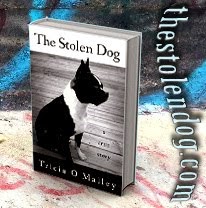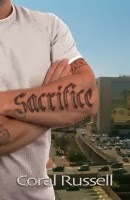The newbies guide to surviving bad reviews
It
was already a bad day when I read her review, only half paying
attention to the words, because it was 6 am, and I had not slept well. I
got a full three sentences in before I realized, "Wow, this lady really
hated my memoir." Not only is she trashing my writing, she's trashing
me, and not so subtly accusing me of lying. She suggested not everything
in my memoir really happened to me. Despite the good reviews that had
been rolling in, as a first time indie author, I could not stop thinking
about this lady who hated my book. I knew I shouldn't care. I knew as
an artist I put my work out there and welcome good and bad feedback. Art
is subjective. I know that. But still my mind obsessed. If my book had
been fiction maybe her review would be easier to take. She thinks my
heroine sucks - no problem. But this was a memoir. She was basically
saying "you're worthless, your story is worthless and you should have
written it in a diary and kept it to yourself." Ouch. I googled how to
deal with bad reviews. I visited sites that list all the horrible
reviews that famous, award winning books received. I laughed and felt in
very good company ... but only slightly. I was not a famous writer. I’m
guessing bad reviews don't hurt as much when you're sitting on a pile
of money and holding your Pulitzer Prize. I considered writing her
back. I know this is a huge no-no. I found myself reduced to age 11 and
wanted to say horrible and childish things to her. I came up with many
creative insults, but I kept them to myself.
It
took a few days for me to cool down and begin to see the bigger
picture. I finally got my "aha" moment as people like to say. This
lady's review actually could be a huge gift. Huge! I should actually be
thanking her. I have struggled all my life with people pleasing and
holding my self-expression back to fit in and be liked. I learned from a
young age to read people and give them what they wanted, what would
make them happy. I've been aware of my accommodating tendencies for
decades, but breaking out of them has been a challenge. The more I
relaxed and let go of my anger, the more I smiled when I thought of this
book-hating lady and her nasty review. Someone doesn't like me or my
book. Big f-ing deal. My world didn't shatter. I didn’t stop breathing.
In fact, nothing happened. There is nothing wrong with hating someone's
memoir, and there is no crime in sharing in vivid detail your feelings
in a book review. I even began to smile at how much she must dislike me
to take the time to write that particular review.
The
real problem here is not the review or the fact that I got upset. The
real problem is when I or when any writer, artist or human chooses to
stay silent, to not play the game of expressing what is inside that
screams to come out, just because we are afraid we won't be liked or
accepted. The world does not need any more people like that. The world
needs bold artists whose desire to express and create is way bigger than
their fears of how their work will be received. I am happy and proud to
say I am one of those artists. And this bad review helped me to realize
that.
I
leave you with one tip for dealing with bad reviews. When all else
fails, get a copy of the Frozen soundtrack, crank up Let It Go and belt
it out along with Idina Menzel ...
Let it go, let it go
And I'll rise like the break of dawn
Let it go, let it go
That perfect girl is gone!
Here I stand
In the light of day
Let the storm rage on,
The cold never bothered me anyway!

Diagnosed with Borderline Personality disorder, Amy struggled with depression and an addiction to sharp objects. Even hospitalization didn't help to heal her destructive tendencies. It took a tumultuous relationship with a man named Truth to bring her back from the depths of her own self-made hell.Amy's marriage to dark, intriguing Truth was both passionate and stormy. She was a fair-skinned southern girl from New Orleans. He was a charming black man with tribal tattoos, piercings, and a mysterious past. They made an unlikely pair, but something clicked. During their early marriage, they pulled themselves out of abject poverty into wealth and financial security practically overnight. Then things began to fall apart.
Passionate and protective, Truth also proved violent and abusive. Amy’s own self-destructive tendencies created a powerful symmetry. His sudden death left Amy with an intense and warring set of emotions: grief for the loss of the man she loved, relief she was no longer a target for his aggression.
Conflicted and grieving, Amy found herself at a spiritual and emotional crossroads, only to receive help from an unlikely source: Truth himself. Feeling his otherworldly presence in her dreams, Amy seeks help from a famous medium.
Her spiritual encounters change Amy forever. Through Truth, she learns her soul is eternal and indestructible, a knowledge that gives Amy the courage to pursue her own dreams and transform herself both physically and emotionally. Her supernatural encounters help Amy resolve the internal anger and self-destructive tendencies standing between her and happiness, culminating in a sense of spiritual fulfillment she never dreamed possible.
An amazing true story, What Freedom Smells Like is told with courage, honesty, and a devilishly dark sense of humor.
Buy Now @ Amazon
Genre – Memoir
Rating – PG-13
More details about the author
Connect with Amy Lewis through Twitter
Website www.WhatFreedomSmellsLike.com


















